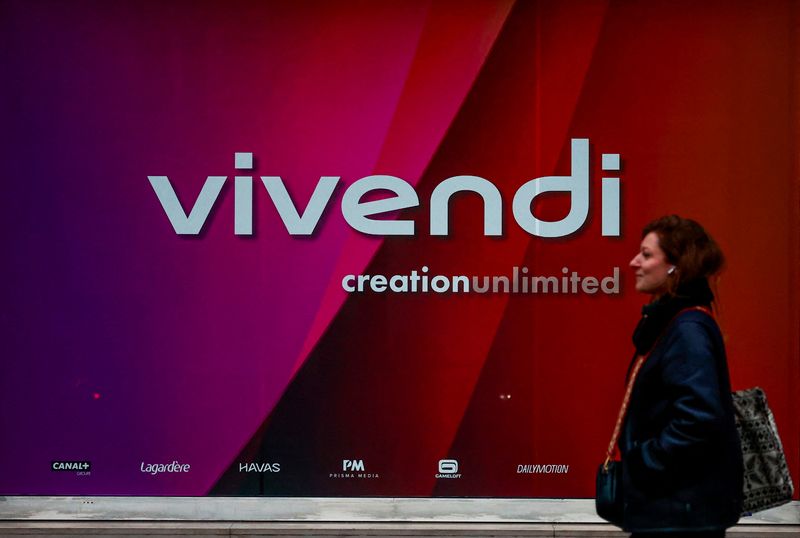By Gianluca Lo Nostro, Leo Marchandon and Florence Loeve
(Reuters) -Shareholders of French media conglomerate Vivendi (OTC:VIVHY) approved on Monday the breakup backed by the Bollore family, aiming to spin off Canal+, Havas and Louis Hachette Group despite some market scepticism and opposition from minority shareholders.
The motions received support from over 97% of the votes, a resounding win for the Bollore clan.
A two-thirds majority was required to validate the split during an extraordinary general meeting in Paris.
The approval came amid protests against the breakup outside the venue, leading to the deployment of the CRS, the French police’s specialist crowd-control unit.
More than 100 organisations formed an action campaign called “Disarm the Bollore Empire,” alleging that billionaire Vincent Bollore was using media to promote France’s far right.
Yannick Bollore, chairman of Vivendi’s supervisory board and Vincent’s son, dismissed such allegations at the shareholders meeting.
Vivendi’s broadcasting division Canal+ will be listed in London but headquartered in France, advertising agency Havas will float in Amsterdam, while Louis Hachette Group, regrouping its publishing assets, will trade on Euronext (EPA:ENX) Growth in Paris.
The new entities will start trading on Dec. 16.
Shareholders will receive one share in each of the new companies for every Vivendi share they hold.
According to JP Morgan, Canal+ is estimated to be worth 6 billion euros ($6.3 billion), Havas is valued at 2.5 billion euros and Louis Hachette is estimated at 2.2 billion euros.
Minority investors CIAM and Phitrust publicly opposed the breakup, saying it would only increase the Bollore family’s grip on the conglomerate. The family is Vivendi’s top shareholder with 29.9%.
CIAM confirmed to Reuters its legal proceedings against the breakup would continue.
“If the Bollore group wanted to take control of Vivendi, it wouldn’t have chosen this operation,” Yannick Bollore said during the meeting.
The chairman told journalists after the vote he is looking at the long term and he has around six months to one year to prove to the market that the project is successful.
Following the meeting, Vivendi shares rose as much as 2.4%, with a significant volume spike after shareholders approved the split.

